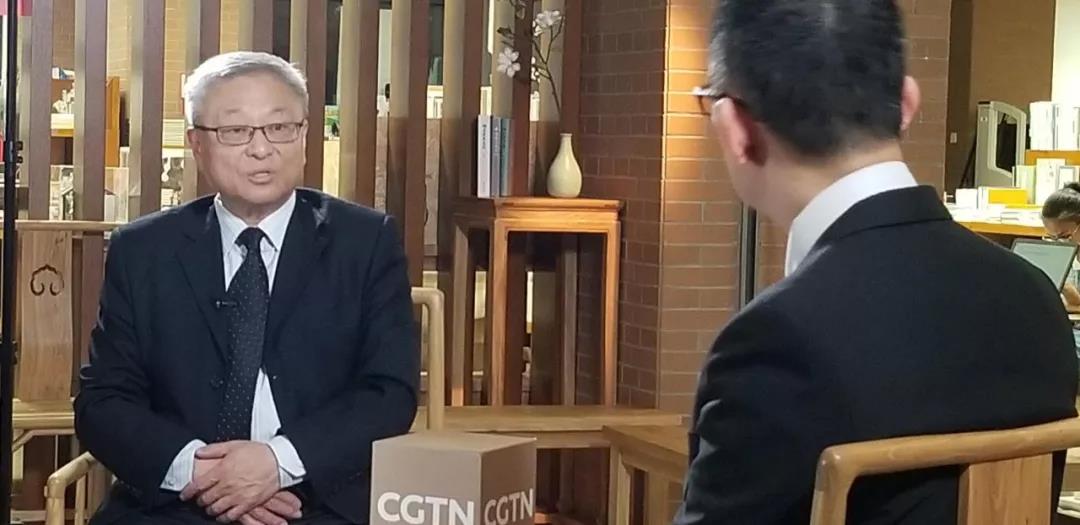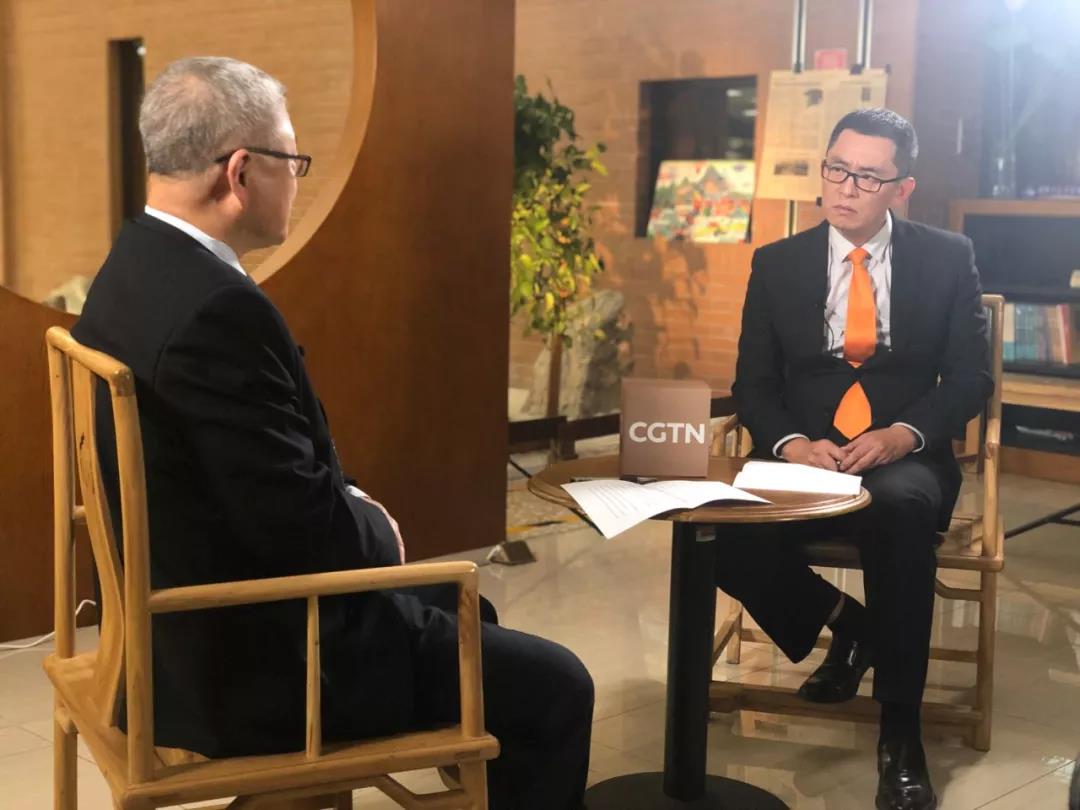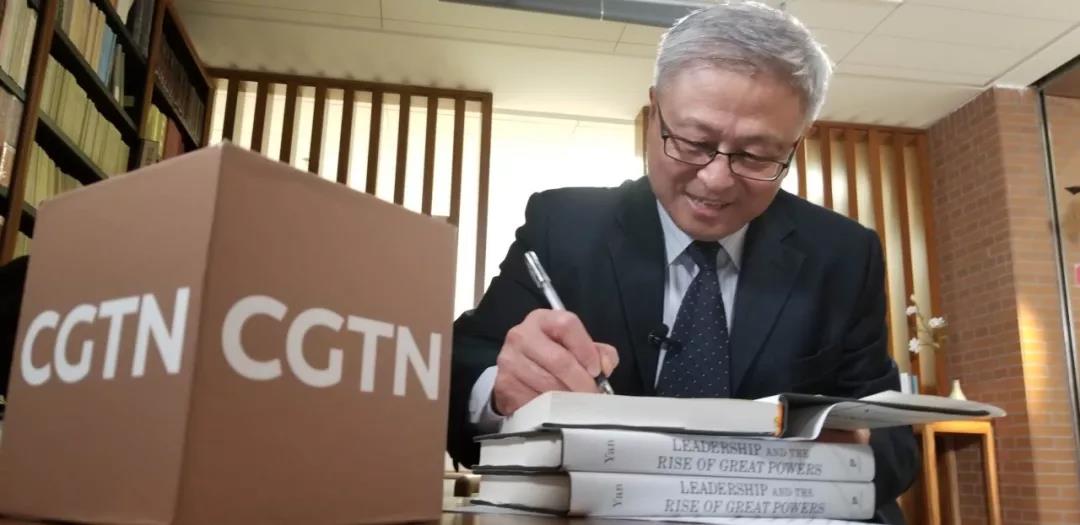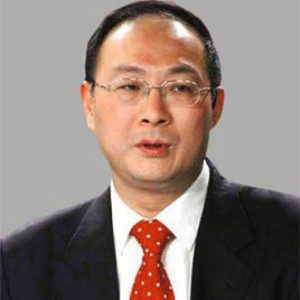周一,美国宣布对华为禁令推迟90天实施。对此,中国外交政策、国家安全和中美关系领域知名专家,清华大学国际关系研究院院长阎学通在接受CGTN主持人邹悦专访时表示,特朗普政府把经济利益放在首位,这是美国对华发起贸易战的原因。而一方若能给另一方造成更大相对损失,则中美贸易冲突还会继续。他认为,数字经济正在加速成为世界财富的最主要来源,而通信技术又是数字经济增长的关键,这是美国采取粗暴方式遏制华为的原因。然而,一国若把经济利益放在最首要位置,意味着该国的综合国力正在减弱。
“It is the economy, stupid.” the Clinton campaign strategy is brought to life again by U.S. President Donald Trump in international relations. At least that is what Yan Xuetong thinks about Trump’s trade war.
“Trump chooses to confront against China in the economic domain, rather than political and security fields like his predecessors. That’s why he initiated a trade war at the first place,” said Yan, dean of the Institute of International Relations at Tsinghua University, in an interview with CGTN’s Zoom In.
The 11th round of trade negotiations ended in Washington on May 11 without a deal, crashing the hope that the impasse could be ended soon.
The U.S. accused China of “reneging” on trade commitments it “has made” in early rounds of talks, which China had firmly denied.
“We believe before we reach a deal, any changes are natural, and inevitable in the whole process,” said Chinese Vice Premier Liu He, Beijing’s top trade negotiator, to reporters in Washington after the talks.
Liu also outlined three main differences keeping the two sides from reaching a deal: China’s call on both sides canceling all punitive tariffs, the figure for Chinese purchases of U.S. goods, and a balanced text of the agreements.
“We did not backtrack. We had disagreements over how to write some of the text is all,” he said, “any country has its own dignity.”
But no matter what is behind the deadlock, immediate harm has been caused. Both stocks slumped after the announcements of new tariffs. Though employment rate in America drops to 3.6 percent in March, reaching a decade low, U.S.-based employers announced 230,433 job cuts through April, up 31 percent from the same period a year ago, according to outsourcing firm Challenger Gray & Christmas.

Many experts argued the Trump’s tariffs on Chinese goods are a bill paid by the American consumers.
A study by the Trade Partnership indicates the new 25 percent tariffs, combined with earlier taxes imposed on 50 billion U.S. dollars in Chinese shipments and steel and aluminum, would cut U.S. employment by 934,000 and cost the average family of four 767 U.S. dollars a year.
And if the U.S. moves ahead with 25 percent tariffs on everything China exports to the U.S., it could amount to a tax hike of more than 2,000 U.S. dollars on the average American family, according to a report by Politico.
“Both sides will do comparative studies on how much they benefit more from the other. If they can cause more damage for the other side than themselves, the trade conflicts will be continued,” Yan Xuetong said.
If a deal can be reached eventually, “it means both sides face less damage or loss caused by the trade war. It doesn’t mean that they will benefit from it, but just reduce further harm,” Yan added.
The self-inflicting harm is generated by the priority of the Trump administration – a booming economy which includes a rise of jobs, a renaissance of manufacturing, and a reduce of trade deficit, though many economists have reiterated that the trade gap doesn’t equate to money “lost” to other countries, as trade imbalances are affected by a combination of factors, such as relative growth rates of countries, the value of their currencies, and their saving and investing rates.
Last week, the U.S. added Huawei Technologies and its affiliates to the Bureau of Industry and Security Entity List, barring the Chinese telecom company from U.S. communication networks, citing national security risks. On Monday, Washington pulled off the move by 90 days, to maintain existing networks and provide software updates to existing Huawei handsets.
“The real concern is not security. It’s wealth,” said Yan Xuetong, “because the digital economy heavily relies on the communication technology a country processes. The most advanced communication technology will generate wealth faster than others.”
“But when a country gave the priority to economic interests, that indicates the country becomes weaker,” Yan added.
Zou Yue: – Welcome to Zoom In with me. And today I’m honored to have invited Professor Yan Xuetong, a renowned scholar of international relations from Tsinghua University, to talk about big power relationships, to talk about U.S.-China trade war, and how the international relations will be reshaped in the future. So welcome, Professor Yan.
邹悦:欢迎收看新一期的《悦辩悦明》。今天我们有幸邀请到了清华大学知名国际关系学者阎学通来和我们谈谈大国关系和贸易战的相关话题,并就国际关系的未来走向进行分析。欢迎您阎教授。
Yan: – Thank you.
阎学通:谢谢。

Zou Yue: – Let us start with the headline-making story. That is the U.S.-China trade war. Why do you think there is a trade war in the first place and where we are now?
邹悦:那我们先从最为引人关注的中美贸易战开始。在您看来,贸易战的起因是什么?现在的局面如何?
Yan: – Ok. First, it is because Trump has a different preference for the strategy confronting against China. And during the Obama’s period or before the Obama, the American government’s main concern was to confront China in political and security fields and rather than economic fields. They were concerned China and the U.S. share a lot of economic interests and it is not necessary for the U.S. to contain China in the economic domain. But Trump has a different concern. So he gave the priority to economy, but mainly for trade. That’s why he initiated a trade war with China. And concerning the current situation, it seems to me, both sides still want to continue the negotiation rather than end it. So I think that there will be a few rounds of negotiations between China and the U.S., but I cannot guarantee they would reach an agreement finally, I don’t know.
阎学通:好的。首先是因为在对抗中国的战略上,特朗普有他自己的侧重点。在奥巴马执政时期,或者再往前的美国政府中,对抗中国的重点是在政治和安全领域,而不是经济领域。他们考虑到中美两国有许多共同的经济利益,觉得美国没有必要在经济领域遏制中国。但是特朗普的关注点不一样。他优先考虑的是经济,主要是贸易。这就是他对华发起贸易战的原因。至于现在的局面,在我看来,双方都希望继续进行谈判。所以我认为中美之间还会有几轮磋商。但是我不肯定最后一定会达成协议,这我不确定。
Zou Yue: – If they can come to an agreement, what kind of agreement will it be and what does it mean for China’s economy and the U.S. economy?
邹悦:如果双方能达成协议,那么这会是一个怎样的协议?对中美两国经济意味着什么呢?
Yan: -Well, if they reach an agreement, it means both sides face less damage or loss caused by the trade war. It doesn’t mean that both sides will benefit more from it. If they can cause more damage for the other side than themselves, they will still continue this trade conflict.
阎学通:如果双方达成协议,那就意味着贸易战给双方造成的打击或损失都会小一些,但这不代表双方从中的获益会更多。如果一方认为另一方的相对损失更大,那么他们就会选择继续贸易冲突。
Zou Yue: – The White House is right now, some say is occupied by a group of nationalists, thinkers like Robert Lighthizer, Peter Navarro, and formerly by Steve Bannon. They believe America has been ripped off by China systematically. That’s why they need a historic turn over everything. Do you think their thinking and strategy will make a difference on the policy of the administration?
邹悦:有人说白宫现在充斥着一群民族主义者,比如罗伯特·莱特希泽,彼得·纳瓦罗,还有之前的史蒂夫·班农。他们认为美国受到了中国系统性的盘剥,所以需要来一次历史性的大翻盘。您认为他们的想法和战略对美国政府的政策会不会产生影响?
Yan: – Well, I think it’s very obvious. This government gave the first priority to American economic interests rather than America’s international leadership. So, this is an issue about the sequence of the priorities.
阎学通:我认为答案很明显。这届美国政府把经济利益放在最首要的位置,而不是美国的外交关系。这涉及优先事项的排序问题。
Zou Yue: – But do you think Trump prioritizing economic competition with China will serve America well?
邹悦:那在您看来,特朗普将与中国之间的经济竞争作为优先事项,这是否会给美国带来好处?
Yan: – I’m not so sure. And a country giving the priority to economic interests indicates the country is becoming weaker.
阎学通:我不确定。但是如果一国将经济利益放在首位,那说明这个国家的实力正在减弱。

Zou Yue: – People are saying, the capabilities of a nation will largely depend on the technological prowess. Whether you can claim the high-end of value chain depends on your technological know-how.
邹悦:大家都说,一国国力的强弱主要看科技实力。能否占据上游产业链取决于你的技术能力。
Yan: – Traditional powers, when they talk about technology, they mean military technology. It doesn’t mean the use of technology to generate wealth, to generate money. These are different concepts. So currently for Trump, the concern is the 5G and under the excuse of national security… Actually, from my understanding, the real concern is not security. It’s wealth. Because the digital economy is heavily relied on the communication technology.
阎学通:传统强国在讨论科技时,指的是军事科技,并不是探讨如何利用科技创造财富和资本。这是两个概念。目前特朗普政府担心的是5G会造成所谓的国家安全威胁……我的理解是,他们真正的担忧不是安全,而是经济利益。因为数字经济严重依赖于通信技术。
Zou Yue: – But you don’t buy the idea that their technology competitiveness will give them a better chance at international leadership.
邹悦:但您并不认同说美国的科技竞争力会让其更有可能取得国际领导地位。
Yan – Well, that depends on the different age. In the traditional age, the military technology superiority will make a country have a strong international influence. But today possibly, the economic technology results in that way. So that really depends on the concrete situation. We cannot say that if a country has better technology than others, it will become the dominant one, not necessarily.
阎学通:这取决于具体的时期。在传统的国际关系时期,军事技术上的优势会给一国带来巨大的国际影响力。但现在,可能起到这种作用的是经济技术。所以这是要视具体形势而定的。我们没法断定更强的科技实力是否能使一国在国际舞台上占据主导地位,这并不一定。
未经允许不得转载:金灿荣粉丝网 » 对话阎学通:美国的贸易战逻辑 经济利益至上


 预告【阎学通专场】观学院·北京12月19日
预告【阎学通专场】观学院·北京12月19日 全球战疫|专访阎学通:疫情会永久性改变世界秩序吗?
全球战疫|专访阎学通:疫情会永久性改变世界秩序吗?